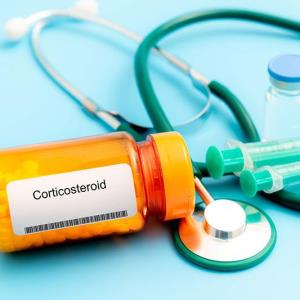Antenatal exposure to corticosteroids, particularly betamethasone, does not increase the prevalence of cardiovascular risk factors or the incidence of major adverse cardiovascular events (MACE) up to 50 years of age, suggests a study.
“Clinicians can have confidence that the established benefits of antenatal corticosteroids for preterm birth in reducing neonatal morbidity and mortality and probable benefits for childhood neurodevelopment are not outweighed by an increase in adult cardiovascular disease,” said the researchers, led by Anthony Walters, Liggins Institute, University of Auckland, Auckland, New Zealand.
Walters and his team assessed the adult offspring of women who participated in the trial of antenatal betamethasone for the prevention of neonatal respiratory distress syndrome (RDS) from 1969 to 1974. The first 717 mothers received two intramuscular injections of 12 mg betamethasone or placebo 24 h apart and the remaining 398 received two injections of 24 mg betamethasone or placebo.
During follow-up, participants completed a health questionnaire and consented to access administrative data sources.
Outcomes included the prevalence of cardiovascular risk factors (eg, hypertension, diabetes, etc.) and age at first MACE (eg, cardiovascular death, myocardial infarction, coronary revascularization, stroke, etc.). Researchers adjusted the analyses for gestational age at entry, sex, and clustering.
Of the 1,218 infants born to 1,115 mothers, 424 (46 percent survivors, 50 percent female) were followed-up at an average of 49.3 years. [PLoS Med 2024;21:e1004378]
No differences were observed between participants exposed to betamethasone or placebo in terms of cardiovascular risk factors (69.4 percent vs 67.2 percent; adjusted relative risk, 1.02, 95 percent confidence interval [CI], 0.89‒1.18; p=0.735) or age at first MACE (adjusted hazard ratio, 0.58, 95 percent CI, 0.23‒1.49; p=0.261).
Similarly, components of the composite outcomes or any of the other secondary outcomes also did not differ between the two cohorts.
“We found no differences in cardiovascular outcomes between those exposed to antenatal corticosteroids and those who were not,” Walters said. “There is no evidence that [such exposure] has adverse effects on the cardiovascular health outcomes of offspring up to 50 years of age.”
These findings supported those of a previous study with 30-year follow-up of offspring of participants in the same trial, showing no differences in the rates of hypertension, systolic or diastolic blood pressure, diabetes, or fasting lipid concentrations between the two groups. [Lancet 2005;365:1856-1862]
Another study also found similar results after following up 81 participants of a randomized controlled trial, which reported a lower systolic blood pressure at 20 years among participants with antenatal exposure to betamethasone than those exposed to placebo. [Pediatrics 2000;105:e77]
“The main limitation [of the current study] was the follow-up rate of less than 50 percent and the use of health questionnaires and routinely collected data rather than in-person assessments,” Walters said.
“Antenatal corticosteroids are recommended for women at risk of preterm birth between 24- and 34-weeks’ gestation and have proven benefit for reducing neonatal morbidity and mortality and potentially reducing neurodevelopmental delay in childhood,” according to the researchers. [Cochrane Database of Systematic Reviews 2020;12:CD004454; https://apps.who.int/iris/handle/10665/363131]

